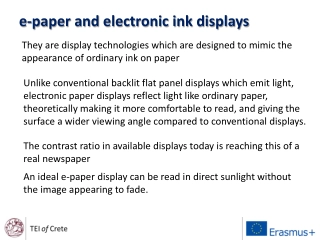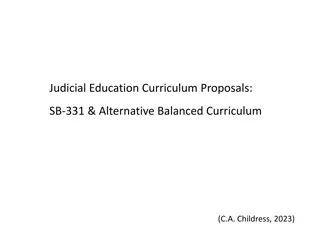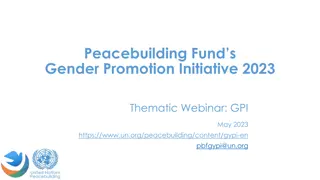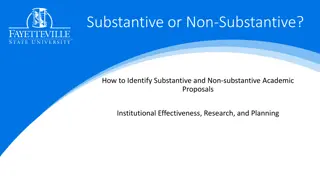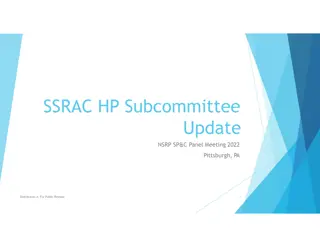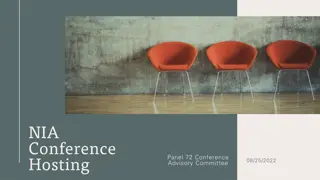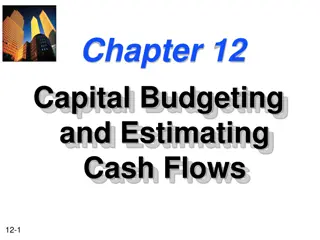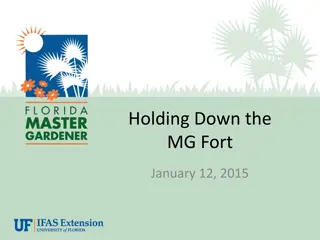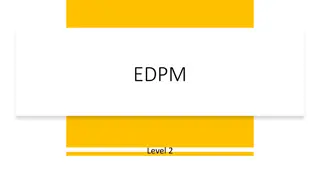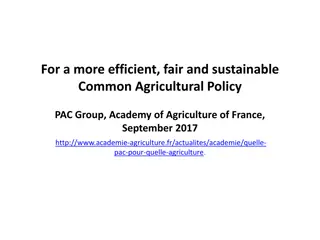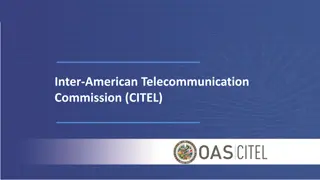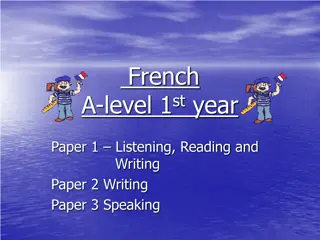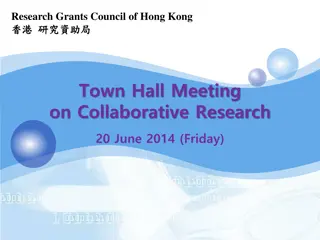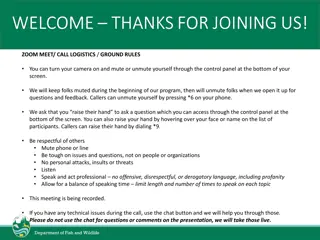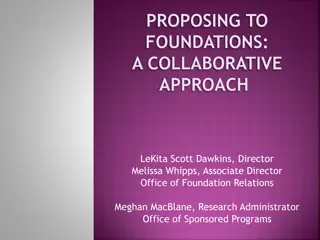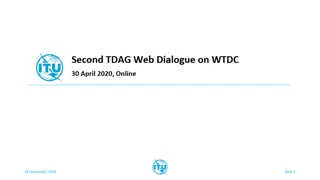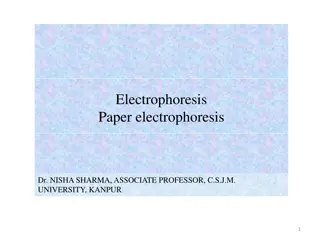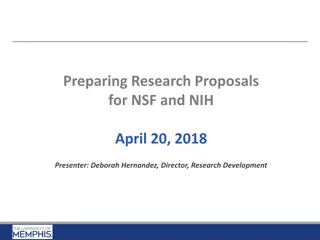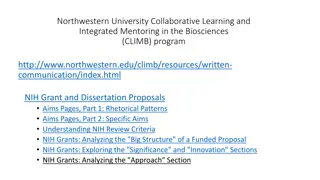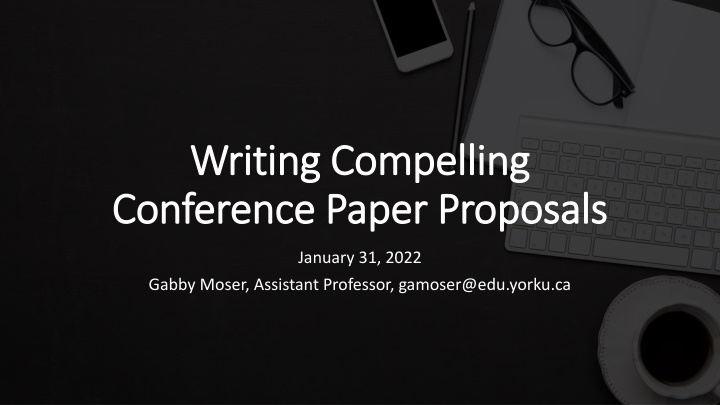
Crafting Compelling Conference Paper Proposals for Graduate Students
Learn how to write compelling conference paper proposals as a graduate student to connect with peers, enhance research skills, and pave the way for collaborations. Discover the types of conference presentations, tips for approaching proposal writing, and a sample proposal for guidance.
Download Presentation

Please find below an Image/Link to download the presentation.
The content on the website is provided AS IS for your information and personal use only. It may not be sold, licensed, or shared on other websites without obtaining consent from the author. If you encounter any issues during the download, it is possible that the publisher has removed the file from their server.
You are allowed to download the files provided on this website for personal or commercial use, subject to the condition that they are used lawfully. All files are the property of their respective owners.
The content on the website is provided AS IS for your information and personal use only. It may not be sold, licensed, or shared on other websites without obtaining consent from the author.
E N D
Presentation Transcript
Writing Compelling Writing Compelling Conference Paper Proposals Conference Paper Proposals January 31, 2022 Gabby Moser, Assistant Professor, gamoser@edu.yorku.ca
to share in-progress research findings to connect with other graduate students and scholars in your field Why present at conferences as a graduate student? to practice asking meaningful and rigorous questions to your peers to observe how scholars or practitioners you admire frame their work to make relationships that may lead to future collaborations or publications to peer review work before submitting it for publication (two conferences per article)
Types of conference Types of conference presentations presentations Poster sessions: short snapshot overviews of a research project that can be consulted without the speaker being present Papers: co-authored or individual papers read aloud, with time for questions and comments Roundtables: conversation on a topic or theme by a variety of scholars or practitioners Workshops: to share a teaching, research methods, or professional practice with other practitioners Panels: pre-organized groups of scholars addressing a theme or issue
How to approach How to approach writing a proposal or writing a proposal or abstract: abstract: What is your object of study? What is your big research question? respond to the theme of the conference or panel (if there is one) or situate this paper within your larger research project Proposals are typically 300-600 words, so be concise and compelling How will you make your argument/what is your methodology? So what? why is this research timely, urgent, interesting or more widely applicable beyond academia or your discipline?
Sample proposals: single paper No Looking After the Internet: curatorial experiments and pedagogical failures in engaging difficult images (350 words) This paper examines the possibilities of learning from difficult images in an era in which digital technologies have made photographs of cultural violence and social trauma ubiquitous. It does so by critically reflecting on the curatorial experiments, dialogic contests, and pedagogical failures that I have encountered as an independent curator and university instructor in organizing No Looking After the Internet: a looking group that has met since 2012 which invites participants to look at an image (or a series of images) they are unfamiliar with, and read the image out-loud together. Chosen in relation to an exhibition, an artist s body of work, or an ongoing research project, No Looking examines a wide range of images from vernacular photography to contemporary artworks without the traditional frameworks of the caption, didactic panel, gallery exhibition, or artist's talk. Instead, it offers the space and time for immersive looking, asking what we might see when we look at photographs slowly and collectively, unpacking our responses in relation to those of others. Drawing on psychoanalytic theories of pedagogy, No Looking extends Deborah Britzman and Richard Simon s concept of difficult knowledge into the visual realm. Social traumas, these scholars argue, are incredibly hard to learn from because they challenge the learner s worldview, demanding a questioning of her very sense of self. Premised on the idea that it is not just what these photographs depict that is difficult, but the interpretive process we encounter as viewers, No Looking asks what makes practices of looking difficult in an internet age, and foregrounds the latent knowledge that emerges from grappling with the photographic evidence these images offer us. In so doing, my approach to exhibiting and teaching difficult images builds on recent debates about the political and civic potential of photography, epitomized by the work of Ariella Azoulay, Sharon Sliwinski, and David Levi-Strauss, which is cautiously optimistic about the spectator s capacity for ethically engaging the suffering of others. Focusing on two iterations of No Looking at the Internetin which participants abilities to engage difficult knowledge broke down, this paper presents the first attempt at articulating a visual methodology that asks what we want from photographs in a post-photographic age.
Sample proposals: pre-organized panel Climates of Colonialism (300 words) Session Proposal to Association for Art Historians 2020 conference Julia Lum, Scripps College (Claremont, CA, USA), Gabrielle Moser, OCAD University (Toronto, Canada), This session investigates how art and cultural production in the (former) British Empire has long charted the interdependent and co-constitutive logics of climate and colonialism. It welcomes scholarly analyses of historic and contemporary art and visual culture from historic maps, topographical sketches, built environments and landscape painting, to twentieth century touristic views, earth art installations, film and video art that consider how artistic treatments of environmental change can be located within broader histories of dispossession, extraction, and genocide. Not only was climate central to anthropological representations of racial differences in imperial ideologies such as suppositions about which populations were naturally suited to particular weather events, temperature ranges and climatic conditions but colonial practices of extraction and commodification radically altered ecologies under colonial rule. Following calls by Indigenous, Black, post-colonial and feminist scholars to locate the history of climate change at the start of global trade and modern colonialism, rather than the Industrial Revolution, this session imagines climate change not as a new event, but rather as the continuation of practices of dispossession and genocide, coupled with a literal transformation of the environment, that have been at work for the last five hundred years (Davis and Todd 2017: 761). Taking up the rich cross-disciplinary discussion that has emerged around the Anthropocene (which permeates nearly every academic discipline), this session seeks to consider representations of not only atmospheric pollution, extraction, flood, fire, and meteorology, but also human/animal and inter-species relations, agrarianism, deforestation, cities and transportation networks, gardening and park land, and acclimatisation as indexes of colonial intervention.
Sample proposals: pre-organized panel Climates of Colonialism (300 words) Session Proposal to Association for Art Historians 2020 conference Julia Lum, Scripps College (Claremont, CA, USA), Gabrielle Moser, OCAD University (Toronto, Canada), Research question This session investigates how art and cultural production in the (former) British Empire has long charted the interdependent and co-constitutive logics of climate and colonialism. It welcomes scholarly analyses of historic and contemporary art and visual culture from historic maps, topographical sketches, built environments and landscape painting, to twentieth century touristic views, earth art installations, film and video art that consider how artistic treatments of environmental change can be located within broader histories of dispossession, extraction, and genocide. Not only was climate central to anthropological representations of racial differences in imperial ideologies such as suppositions about which populations were naturally suited to particular weather events, temperature ranges and climatic conditions but colonial practices of extraction and commodification radically altered ecologies under colonial rule. Following calls by Indigenous, Black, post-colonial and feminist scholars to locate the history of climate change at the start of global trade and modern colonialism, rather than the Industrial Revolution, this session imagines climate change not as a new event, but rather as the continuation of practices of dispossession and genocide, coupled with a literal transformation of the environment, that have been at work for the last five hundred years (Davis and Todd 2017: 761). Taking up the rich cross-disciplinary discussion that has emerged around the Anthropocene (which permeates nearly every academic discipline), this session seeks to consider representations of not only atmospheric pollution, extraction, flood, fire, and meteorology, but also human/animal and inter-species relations, agrarianism, deforestation, cities and transportation networks, gardening and park land, and acclimatisation as indexes of colonial intervention. Objects of study Methodology /Theory So what?
Conferences that have graduate student components American Educational Research Association Canadian Association of Applied Linguistics American Association of Applied Linguistics Teaching English to Speakers of Other Languages Master s Students Teaching English to Speakers of Other Languages Doctoral Students Oral History Association American Studies Association Congress of the Humanities and Social Sciences

